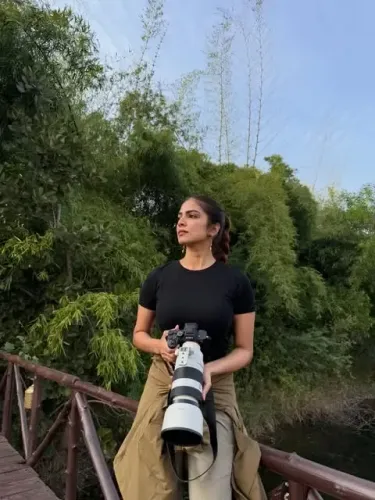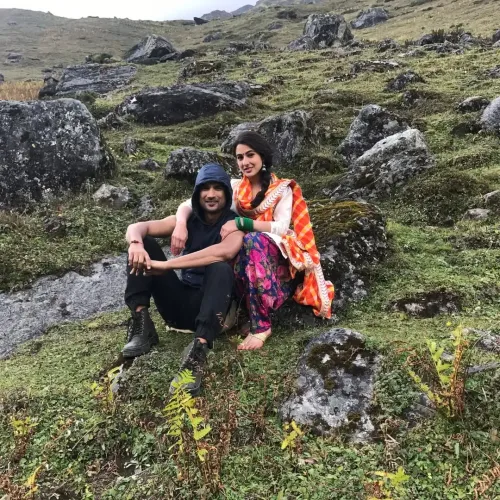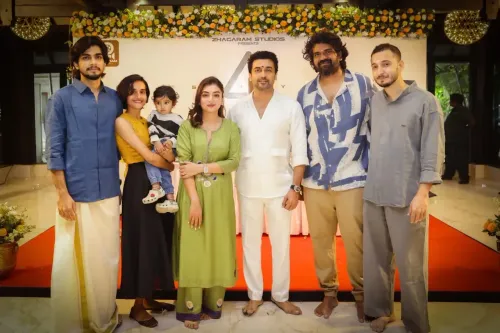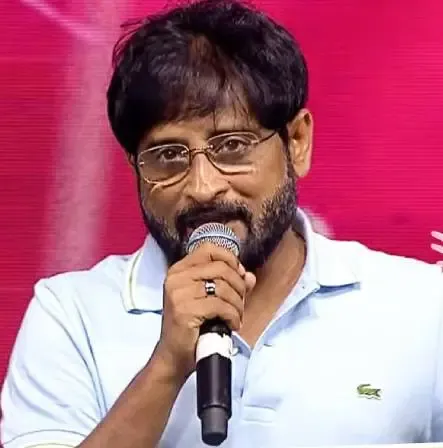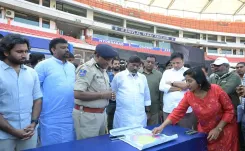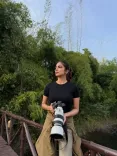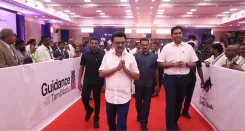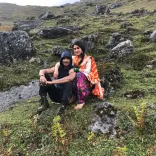Filmmaker Onir Discusses the Neglect of Queer Stories by Mainstream Studios
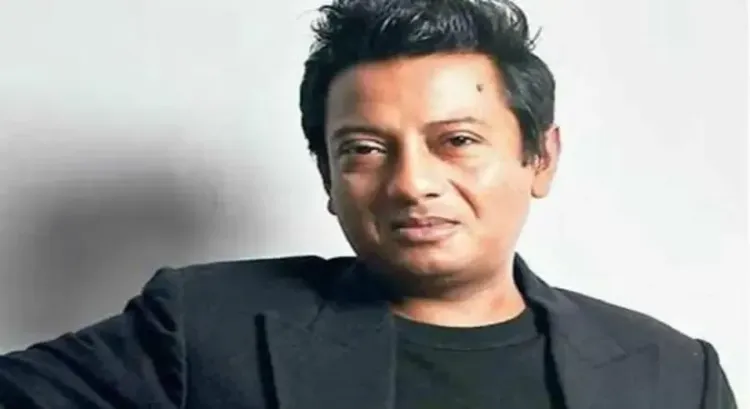
Mumbai, Dec 29 (NationPress) Filmmaker Onir has consistently delved into themes of identity in his cinematic creations, especially concerning LGBTQ+ topics and the complexities of human relationships, subjects that are frequently overlooked by major Hindi film studios.
His newest film, 'We Are Faheem and Karun', filmed in the stunning Gurez Valley of Kashmir, premiered globally at the recent Dharamshala International Film Festival (DIFF).
The film showcases a predominantly local cast and narrates the tale of Karun, a young security officer from southern India assigned to the isolated Gurez Valley, and Faheem, a Kashmiri man he encounters at a checkpoint.
This movie portrays the tragic romance that unfolds between the two men.
Yet, Onir expresses disappointment that queer narratives rarely receive the recognition they merit.
"In this heteronormative society, these stories are marginalized. Financial constraints are a significant barrier, and there's a stark distinction -- 'our' narratives versus 'their' narratives. While some major studios may engage in tokenism with a single gay film, there remains a noticeable lack of maturity in decision-making circles and among viewers. It’s no wonder we continue to submit our films to queer film festivals," he shares with IANS.
The National Award-winning director, renowned for films such as 'My Brother… Nikhil', 'I Am', 'Bus Ek Pal', 'Shabd', and 'Kuchh Bheege Alfaaz', even utilized his personal insurance funds to finance his latest project, which is produced by filmmaker Deepa Mehta.
He reveals that his aspiration to create a sequel to 'I Am' -- titled 'We Are', celebrating the landmark 2018 Supreme Court ruling that decriminalized homosexuality, ultimately led to 'We Are Faheem & Karun'. He recalls that the film was initially envisioned as an anthology featuring four distinct stories -- gay, lesbian, trans, and bisexual.
However, Onir discovered that each narrative functioned more effectively as an individual story, resulting in his current project.
Filmed in the stark yet beautiful Gurez Valley, Kashmiri actors were purposefully selected.
"Representation is crucial. For queer stories, we need a greater presence of queer voices behind the camera. Similarly, in this film, it's vital that the community is represented by individuals from the region. In Hindi cinema, non-Kashmiris frequently portray characters from this area, often leading to one-dimensional representations. The film is presented in Kashmiri because I aimed to avoid tokenism, rather than inserting a few words in accented Kashmiri to convey authenticity," states Onir, who believes the Valley harbors immense untapped talent, although it remains difficult to feature women prominently in front of the camera.
Contemplating the significance of 'identity' in his work, he emphasizes that when one’s identity is disregarded, it heightens awareness of other marginalized groups.
"Being queer does not restrict your empathy -- it broadens it. Even in 'I Am', not all narratives centered solely around queer identity," he asserts.
Now, the filmmaker, who co-authored his memoir (with his sister) 'I Am Onir and I Am Gay', aspires to delve deeper into Kashmiri narratives, not necessarily linked to the region's conflicts.
Mir Salman, who takes on the lead role, believes that the film will help dismantle stereotypes regarding Kashmiri actors.
"I am certain this film will challenge existing perceptions. Additionally, Kashmiri actors must strive to diversify their skills, enhance their language proficiency, and break through barriers," he states.
Sana, portraying Mir's mother, connects deeply with her character's instinct to safeguard her child.
"I have two sons of similar ages, and a mother's primary instinct is inevitably to protect her children. Many have questioned whether a mother in the Kashmiri countryside would respond as my character does to her son being gay. My answer is yes -- geography does not define a mother’s instinct," she concludes.


